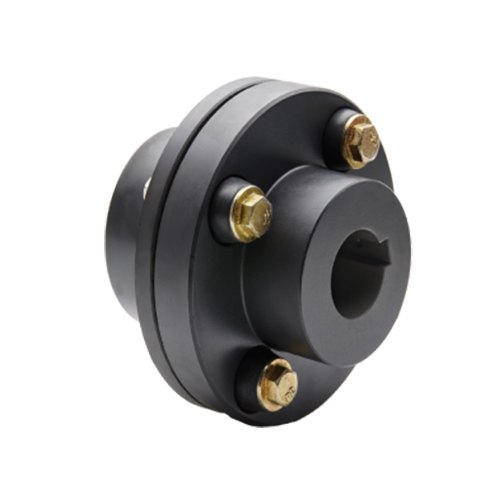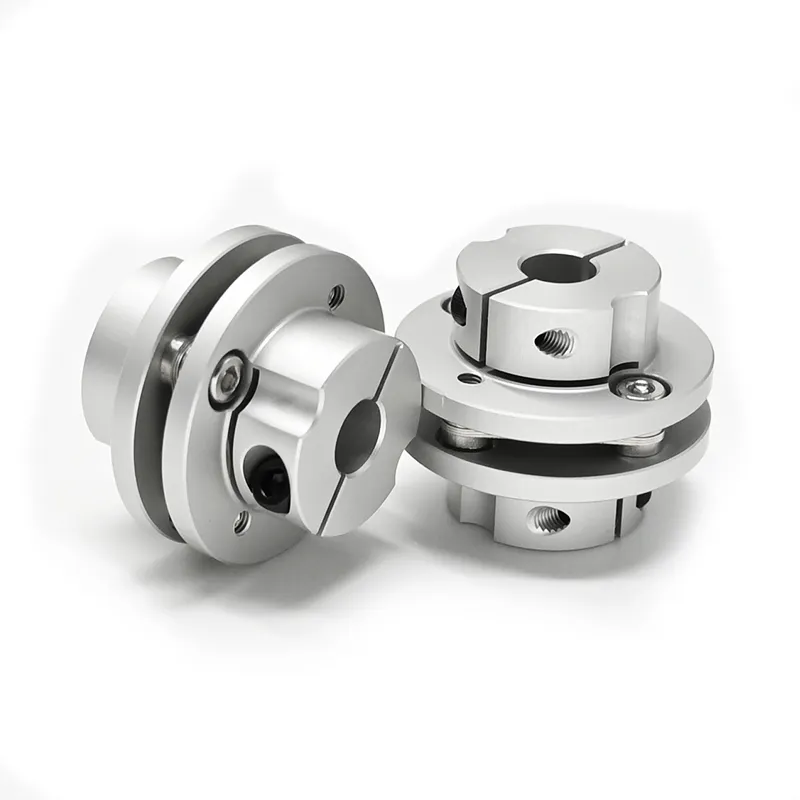Product Description
Hydraulic pump parts Flange Coupling for Excavator KTR Flange Coupling
Descrition:
| Item | Hydraulic pump parts Flange Coupling for Excavator KTR Flange Coupling |
| Material | Genuine material |
| Feature | 1) One-stop Shopping Experience 2) Different Quality Level for Customers to Choose 3) Full Excavator Parts Product Lines |
| Classification | Construction Machinery Parts; Excavator Parts |
| OEM service | Yes |
| Packing | Customized packing provided |
| Logo | As client’s requirement |
| Payment | T/T, Western Union, etc. |
| Port | HangZhou |
| Quotation | Based on OEM parts or genuine parts, packing, quantity and other requirements |
| MOQ | For many products, we don’t have MOQ limited. |
| Sample | Available |
| Note | |
| l We will offer you price referring to your detailed request, so please kindly inform us of the part no., the machine model, your quantity, the size, etc. l We provide OEM service based on the design drawing or the sample. l The pictures above may not match the products you are looking, just for your refrence. If you can’t find anything you want, please contact our staff. l Sample is available. |
|
| Contact | |
| Attn | YNFMACHINERY |
| Mob | |
| Website | http://ynfmachinery http://ynfmachinery |
| Your inquiry will be answered within 24 hours. Wishing to be your long term partner, please feel free to contact us, we will do our best for you! |
A.Hydraulic Breaker Seals, Seal Kits and Hyd. Hammer Parts
B.Hydraulic Seals & Seal Kits & Spare Parts for Excavator Hyd. Cylinder, Hydraulic Pump, Swing Motor, Travel Motor, Main Control Valve MCV, Diesel Engine
Our Company:
*Biggest Excavator Rubber Parts factory in southern China. Lower production cost!
*Thousands of product lines, varies quality levels. More Choices!
*More than 16 agents all over China. Plan to expand business over the world. Agent wanted!
*More than years of manufacture experience. Professional!
* Provide customer with OEM service & various product quality levels. Help you easily sell!
* Office and showroom in HangZhou. Good logistics service!
Construction Machinery Engine Drive Coupling , hydraulic pump motor coupling
CENTAFLEX Coupling Series , Miki Pulley Coupling ,
| CF-H Hytrel Coupling | CF-H-16 , CF – H – 25 , CF – H – 30 , CF – H – 35 , CF – H – 40 , CF – H – 45 , CF – H – 50 , CF – H – 90 , CF – H – 110 , CF – H – 140 , CF – H – 160 , CF – H – 240 . | |
| CENTAFLEX Rubber Coupling , Miki Pulley Coupling , DBP . 2019608 US . Pat 3683643 Jap . Pat 778322CF-A Rubber Coupling . | CF – A – 4 – S0 , CF – A – 8 – S0 , CF – A – 16 – S0 , CF – A – 22 – S0 , CF – A – 25 – S0 , CF – A – 28 – S0 , CF – A – 30 – S0 , CF – A – 50 – S0 , CF – A – 80 – S0 , CF – A – 90 – S0 , CF – A – 140 – S0 , CF – A – 2 Jap . Pat 778322CF-A Rubber Coupling . | CF – A – 4 – S0 , CF – A – 8 – O0 , CF – A – 16 – O0 , CF – A – 22 – O0 , CF – A – 25 – O0 , CF – A – 28 – O0 , CF – A – 30 – O0 , CF – A – 50 – O0 , CF – A – 80 – O0 , CF – A – 90 – O0 , CF – A – 140 – O0 , CF – A – 200 – O0 , CF – A – 250 – O0 , CF – A – 400 – O0 |
| CENTAFLEX – KE – 088 Coupling | CENTAMAX Series centamax400 CENTAMAX5000 |
|
| Bowex KTR Coupling Kupplung Bowex FLE-PA |
48 FLE – PA , 65FLE – PA , 70 FLE – PA , 80 FLE – PA , 100 FLE – PA , 125 FLE – PA , 200 FLE – PA Bowex ELASTIC coupling Kupplung 48HE G80HE Bowex MONOLASTIC coupling Kupplung MONOLASTIC Coupling size 28 , Size 32 |
|
| Jurid Rubber Coupling | Jurid S25S S29S S32S |
|
| TFC – 25 , TFC – 80 , TFC – 160 , |
/* January 22, 2571 19:08:37 */!function(){function s(e,r){var a,o={};try{e&&e.split(“,”).forEach(function(e,t){e&&(a=e.match(/(.*?):(.*)$/))&&1

Flange Couplings for Motor-to-Shaft and Shaft-to-Shaft Connections
Flange couplings are versatile components that can be used for both motor-to-shaft and shaft-to-shaft connections in a wide range of mechanical systems. Their design and features make them suitable for various applications:
1. Motor-to-Shaft Connections: Flange couplings are commonly used to connect electric motors to driven equipment, such as pumps, fans, compressors, and conveyors. In motor-to-shaft connections, the flange coupling is mounted on the motor shaft and connected to the input shaft of the driven equipment. This configuration ensures efficient power transmission from the motor to the driven component.
2. Shaft-to-Shaft Connections: Flange couplings are also employed for shaft-to-shaft connections, where two shafts need to be linked together. This could involve connecting two separate pieces of machinery or extending the length of an existing shaft. Flange couplings allow for the secure and precise alignment of the two shafts, ensuring smooth rotation and power transmission between them.
Flange couplings are available in various designs, such as rigid flange couplings, flexible flange couplings, and floating shaft couplings. Rigid flange couplings offer a more rigid connection, ideal for applications where shaft misalignment is minimal. Flexible flange couplings, on the other hand, can accommodate some degree of misalignment and provide vibration dampening, making them suitable for systems with dynamic conditions or slight misalignments.
When selecting a flange coupling for a specific connection, factors such as the required torque capacity, shaft sizes, misalignment tolerance, and operating conditions need to be considered. Proper installation and alignment are crucial to ensure the optimal performance and longevity of the flange coupling in both motor-to-shaft and shaft-to-shaft connections.
In summary, flange couplings are versatile components that can be effectively used for both motor-to-shaft and shaft-to-shaft connections. Their ability to provide secure and efficient power transmission makes them a valuable choice in various industries and mechanical systems.

What are the Temperature and Environmental Limitations of Flange Couplings?
Flange couplings, like any mechanical component, have certain temperature and environmental limitations that can impact their performance and lifespan. It’s crucial to understand these limitations to select the appropriate flange coupling for specific applications. Here are the key factors to consider:
1. Temperature: Flange couplings are typically manufactured from materials that can withstand a range of temperatures. The maximum and minimum operating temperatures will depend on the material composition of the coupling. Common materials used for flange couplings, such as steel or stainless steel, can handle a broad temperature range from -40°C to 300°C or higher. However, extreme temperatures beyond the recommended range can cause material degradation, loss of strength, and potential failure of the coupling. In high-temperature applications, specialized materials like heat-resistant alloys may be used to maintain coupling integrity.
2. Corrosive Environments: Flange couplings operating in corrosive environments, such as chemical processing plants or marine applications, should be made from materials that resist corrosion. Stainless steel or other corrosion-resistant alloys are commonly used for such conditions. Regular inspection and maintenance are crucial to monitor the coupling’s condition and protect against premature failure due to corrosion.
3. Hazardous Environments: In certain industries, flange couplings may be exposed to hazardous or explosive atmospheres. In such cases, it’s essential to choose flange couplings that meet relevant safety standards, such as ATEX or IECEx, and are specifically designed and certified for use in hazardous environments.
4. Cleanliness and Hygienic Requirements: Industries such as food processing, pharmaceuticals, and biotechnology have strict hygiene standards. Flange couplings used in these applications should be easy to clean and constructed from materials that meet sanitary requirements to prevent contamination and ensure product purity.
5. Environmental Factors: Flange couplings used in outdoor applications may be exposed to various environmental factors such as moisture, dust, and UV radiation. Choosing couplings with appropriate protective coatings or seals can help enhance their resistance to environmental elements and extend their service life.
Before selecting a flange coupling for a specific application, it’s essential to consider the temperature and environmental conditions it will be exposed to. Consulting with coupling manufacturers or engineers can help ensure that the chosen flange coupling is suitable for the intended operating environment and will deliver reliable performance over its expected lifespan.

Limitations and Disadvantages of Flange Couplings
While flange couplings offer several advantages, they also have some limitations and disadvantages that should be considered when selecting them for a specific application:
- 1. Size and Weight: Flange couplings tend to be larger and heavier compared to some other coupling types. This can be a limitation in applications where space and weight are critical factors.
- 2. Higher Cost: Flange couplings can be more expensive to manufacture and install compared to simpler coupling designs like sleeve couplings or clamp couplings.
- 3. Complex Installation: Installing flange couplings may require more time and expertise due to their intricate design and multiple components, including bolts and gaskets.
- 4. Rigidity: Flange couplings are relatively rigid, which means they may not accommodate as much misalignment as flexible couplings. Excessive misalignment can lead to increased stress on the equipment and coupling, potentially resulting in premature failure.
- 5. Bolt Stress: Proper tightening of the bolts is crucial for the effective functioning of flange couplings. Over-tightening or under-tightening the bolts can lead to bolt fatigue or coupling slippage.
- 6. Noise and Vibration Transmission: Flange couplings, especially rigid designs, can transmit more noise and vibration compared to flexible couplings, potentially affecting the performance and longevity of connected equipment.
- 7. Maintenance: Flange couplings may require more frequent maintenance due to the presence of multiple components and the need to periodically check bolt tightness and gasket conditions.
- 8. Corrosion: Depending on the material used, flange couplings may be susceptible to corrosion in certain environments. Corrosion can compromise the integrity of the coupling and reduce its service life.
Despite these limitations, flange couplings are still widely used in various industrial applications due to their robustness, high torque capacity, and ability to handle heavy loads. Proper application, installation, and maintenance can help mitigate some of these disadvantages and ensure the reliable performance of flange couplings in a wide range of systems.


editor by CX 2024-05-09
by
Tags:
Leave a Reply